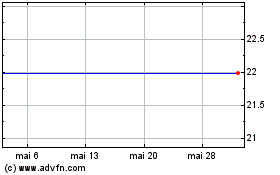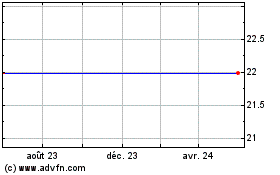CORRECT (12/8):FDA Panel Suggests Bayer, GE MRI Drugs Be Restricted
09 Décembre 2009 - 7:04PM
Dow Jones News
A panel of medical experts on Tuesday suggested drugs made by
General Electric Co. (GE) and Bayer AG (BAYRY, BAYN.XE) be
restricted to people without severe kidney problems amid reports
they may cause a fatal thickening and hardening of the skin.
The group was formed to help the U.S. Food and Drug
Administration determine whether the products labels needed to be
updated to restrict them to certain patients.
GE's Omniscan and Bayer's Magnevist are among seven FDA-approved
products containing gadolinium that are used to enhance images when
patients undergo magnetic resonance imaging or similar procedures.
The FDA and regulatory agencies in Europe have received hundreds of
reports of patients with severe kidney disease who have taken the
products and suffered from nephrogenic systemic fibrosis, a
potentially fatal skin condition. In November, Europe's health
regulatory agency said GE's Omniscan, Bayer's Magnevist and
Covidien Ltd.'s (COV) Optimark shouldn't be used in patients with
severe kidney problems.
The panel struggled with determining whether some or all of the
seven-FDA approved drugs should be restricted. The FDA has said
Omniscan, Magnevist and Optimark appear to put patients at a higher
risk for nephrogenic systemic fibrosis than similar drugs. The
panel reached a consensus that Omniscan and Optimark needed to be
restricted. Panel members also said Magenvist needed to be
restricted, but to a lesser extent than Omniscan and Optimark.
Magnevist had 2008 U.S. sales of about $204 million, according
to IMS Health Inc. (RX), a health information company. GE's
Omniscan had U.S. sales during the same time frame of $80
million.
Covidien officials said Wednesday they have already agreed to
update the product's label in the U.S.
The labels for the products were updated by the FDA in 2006 to
warn that using them in patients with severe kidney disease may
cause nephrogenic systemic fibrosis. Radiologists told the FDA that
clinicians have essentially stopped using the products in these
patients, and the FDA's Robert Boucher said the number of reports
of nephrogenic systemic fibrosis have dropped significantly since
the 2006 warning.
Panel members said the labeling for the products needs to keep
pace with how the drugs are being used in the real world. "The
practice is way ahead of the label now and we need to get these two
matched up," said panel member Peter Choyke, a radiologist with the
National Cancer Institute.
It's unclear what changes if any the FDA will ultimately take,
though the agency generally follows the panel's advice. Dr. Dwaine
Rieves, head of the FDA's imaging division, acknowledged that the
label hasn't kept up with clinical practice. Still, he said, the
panel's thoughts are relevant because they will help the FDA when
it considers similar drugs that are up for approval. A French
company told the FDA during a public comment period that it intends
to file to get approval to sell a drug with gadolinium that would
enhance images during MRIs.
GE said in a statement that the current labeling for Omniscan is
adequate and shouldn't be updated. Clinical practices have already
changed, the company noted, "rendering additional label changes
unnecessary."
-By Jared A. Favole, Dow Jones Newswires; 202-862-9207;
jared.favole@dowjones.com
IMS Health (NYSE:RX)
Graphique Historique de l'Action
De Avr 2024 à Mai 2024

IMS Health (NYSE:RX)
Graphique Historique de l'Action
De Mai 2023 à Mai 2024
